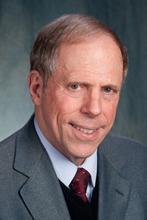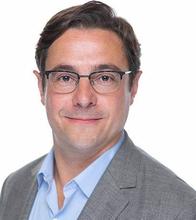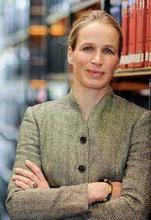In addition to the Royal D. Alworth, Jr. Memorial Lecture, forums and conferences, the Institute provides a series of international lectures by local, national and international authorities on subjects of timely interest. The Alworth Institute draws not only upon the rich store of local academics with expertise in a variety of areas, but also visiting international faculty.
Spring 2024 Lectures
Global Issues in an Election Year
Wednesday, April 3 - 7:00 pm - KAM Library 4th Floor Rotunda
Presented by Thomas Hanson, former Foreign Service Officer with the U.S. State Department and UMD Alworth Institute Diplomat in Residence

While is may not be difficult to figure out those issues that will be the most pressing and examined in the 2024 U.S. election year - the Israel-Hamas conflict, the war in Ukraine, power and economic competition with China - it will be useful to have an analysis of these from Thomas Hanson. In his many talks at UMD, he has often provided a presentation on the history and complexity of the global issues that face the competing campaigns and potential winning administration and its foreign policy bureaucracies. Hanson will also discuss anticipated government responses to these and other potential emerging issues.
When with the U.S. Department of State, Thomas Hanson's foreign postings included East Germany, France, Norway, the Soviet Union, Sweden, and Georgia. He also assisted in opening new embassies in Mongolia and Estonia. Hanson has also worked on the Foreign Relations Committees of the U.S. Senate and House of Representatives. He was Director for NATO and European Affairs at the Atlantic Council of the United States in Washington, D.C. He serves on the St. Paul-Minneapolis Committee on Foreign Relations and as a lecturer/consultant for the Minnesota International Center. He is an occasional foreign affairs commentator on Minnesota Public Radio and serves on the boards of the Minneapolis chapter of the Oslo Center for Peace. Hanson graduated from the University of Minnesota with a B.A. in International Relations. He holds graduate degrees from the Fletcher School of Law and Diplomacy at Tufts University; the Geneva Institute of Advanced International Studies in Switzerland; and the National School of Administration (ENA) in Paris, France. Hanson has served as the Alworth Institute's Diplomat in Residence for the last 16 years.
____
The Past, Present and Future of U.S.-Israel Relations
Thursday, March 14- 6:30 pm - Virtual via Zoom - Register at z.umn.edu/Waxman2024
Presented by Dr. Dov Waxman, Director, of the UCLA Y&S Nazarian Center for Israel Studies and Professor of Political Science and The Rosalinde and Arthur Gilbert Foundation Chair of Israel Studies at The University of California Los Angeles

Before joining UCLA, Dr. Waxman was the Stotsky Professor of Jewish Historical and Cultural Studies, a Professor of Political Science, and the director of the Middle East Center at Northeastern University. He was previously an associate professor at the City University of New York, an assistant professor at Bowdoin College, and a visiting professor at the Middle East Technical University. He has also had visiting fellowships at Oxford University, the Hebrew University, Bar-Ilan University and Tel Aviv University. He graduated from Oxford University and received his Ph.D. and M.A. from the School of Advanced International Studies at Johns Hopkins University. His research and writing focus on the Israel-Palestine issue, contemporary antisemitism, Jewish politics, Israeli politics, Israel-Diaspora relations, U.S.-Israel relations, and U.S.-Middle East relations. He is the author four books: The Pursuit of Peace and The Crisis of Israeli Identity: Defending / Defining the Nation (2006), Israel’s Palestinians: The Conflict Within (2011), Trouble in the Tribe: The American Jewish Conflict over Israel (2016), and The Israeli-Palestinian Conflict: What Everyone Needs to Know (published by Oxford University Press in 2019). His writing has also been published in The New York Times, The Washington Post, The Los Angeles Times, The Guardian, Haaretz, The Forward, The Atlantic, Time, Slate, Foreign Policy and many other places. He is frequently interviewed on television and radio and he hosts the Nazarian Center’s podcast, Israel in Depth. You can follow him on X (Twitter): @dovwaxman.
_____
Aurora to Go: How New Trends in the Internationalization of European Higher Education Are Changing Educational and Research Partnerships
Thursday, February 29 - 6:30 pm - KAM Library 4th Floor Rotunda
Presented by Dr. Barbara Buchenau, Professor, North American Literary and Cultural Studies at the University Duisburg-Essen in Germany

On September 26, 2017, the French president Emanuel Macron gave a talk at the Sorbonne, which envisioned the creation of “European universities, networks of universities which allow students to study abroad and follow classes in at least two languages”. The European Commission quickly adopted this vision and expanded on it to bring about the creation of as many as 60 alliances, bringing together a total of up to 500 institutions of higher education from all corners of the European Union by 2024 (amounting to a participation rate of about 10 % of universities across the EU). This talk will introduce this massive initiative for a transformation of the higher education sector using the example of the Aurora European University Alliance. The Aurora Alliance consists of 9 research-intensive universities and 6 associated academic and non-academic partners from 15 European countries. In addition, the University of Minnesota is the Alliance’s only US partner. This alliance wants to move towards 1) transdisciplinary, SDG-oriented teaching and learning, 2) academic collaboration and community building that can achieve societal impact, 3) collaboration with external stakeholders that deepens students’ engagement in education, research & outreach.